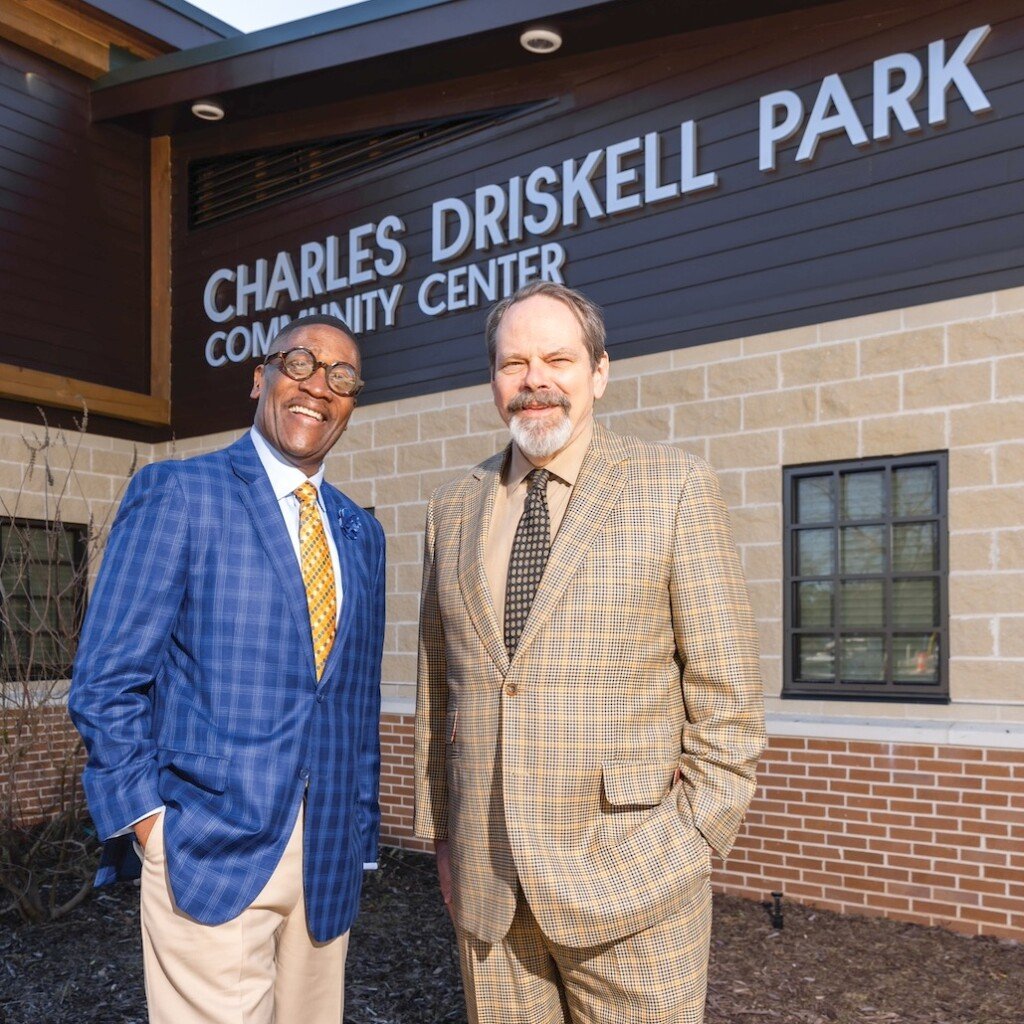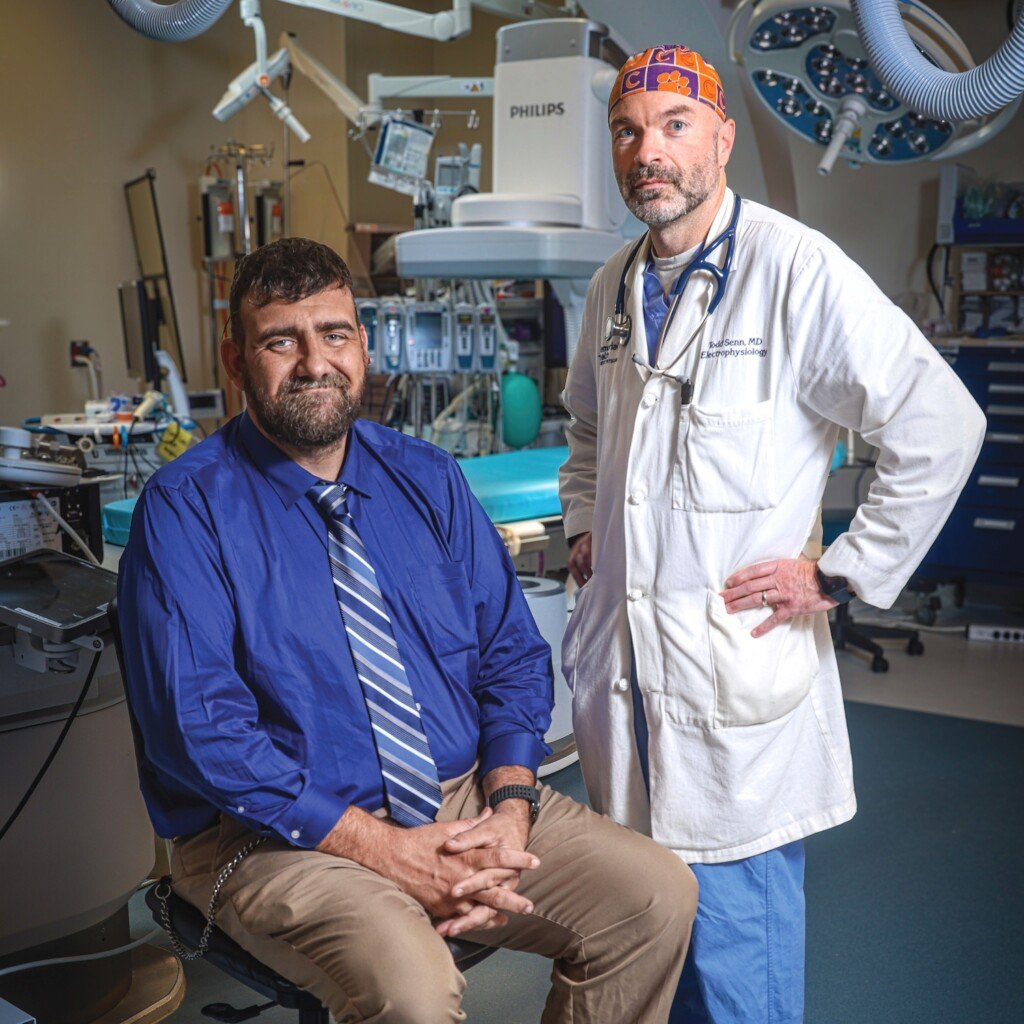Q&A with Burt Jones | Up for the Challenge
Lieutenant Governor, State of Georgia
Burt Jones took office in January as Georgia’s 13th lieutenant governor and hit the ground running, presiding over the state Senate during the often-contentious 2023 legislative session. He was a strong presence, drawing both praise and criticism. He took on the Certificate of Need (CON) process that regulates new healthcare facilities; stalled a popular mental health bill that had passed overwhelmingly in the House; and established study committees to look into foster care, tax breaks and workforce development.
Jones, a Butts County native who previously served in the Senate for 10 years, was among a group of “alternate electors” – Republican legislators challenging the results of the 2020 presidential election, which saw Georgia’s electoral votes go to President Joe Biden.
Georgia Trend’s Susan Percy talked to Jones in his Capitol office. He said he will continue his assault on Certificates of Need, especially for rural parts of the state, and indicated a revised mental health bill will be a big part of the 2024 session. And he is not ruling out a run for governor in 2026.
Here are edited highlights from the interview.
GT: How would you appraise your term as lieutenant governor so far, especially presiding over the Senate for this year’s session?
Jones: It’s been smooth. It’s a job I was pretty familiar with, having served in the Senate. You’ve got to surround yourself with good people, and I think I assembled a pretty good team. They worked hard, got along with the caucus pretty well.
GT: You established a number of legislative study committees. Tell us about the one looking at foster care and adoption.
Jones: I wanted to make it a priority early on to look at foster care and the DFCS system. I think if you are going to be for life, you need to be for it at every stage. There’s no question there are challenges in that foster care arena. We’re focused on trying to [make improvements] for people that want to adopt children, trying to make it more affordable. Also protect kids that are currently in foster care and trying to expand the foster care system.
“I wanted to make it a priority early on to look at foster care and the DFCS system. I think if you are going to be for life, you need to be for it at every stage.” Burt Jones, Lieutenant Governor, State of Georgia
GT: Let’s talk about Certificate of Need. SB 99, which would have eliminated the required process for building new healthcare facilities in rural communities, passed in the Senate but not in the House. Supporters of the bill say the process is too costly and time-consuming; opponents believe it is necessary to protect existing facilities, especially those that treat large numbers of uninsured patients, from unfair competition. I know you have set up a study committee to look at the issue. Why is this important to you?
Jones: Being from rural Georgia, I know the challenges a lot of small communities face around the state – one is in the healthcare arena, access to healthcare. So we took on the Certificate of Need process pertaining to rural communities. I think it’s an antiquated system, hindering more communities than it’s helping. I hope we are able to build a coalition for the bill. It’s directed at rural communities, representing probably 115 counties out of 159. The communities that want to improve their healthcare standing [by building new facilities], they ought to be able to do that. We ought not have the state stand in the way.
GT: Do you want to eliminate the Certificate of Need process entirely?
Jones: SB 99 just deals with rural communities, but the study committee is set up to look at all aspects of it. I would say all cards are on the table. We are one of few states that still have that CON. South Carolina just repealed it.
GT: What do you say to critics of the bill who worry about unfair competition?
Jones: You have example after example around the state of communities who have either attempted to build a hospital facility or [other] physical facility, and they’ve been blocked by the Certificate of Need process. We want to eliminate those barriers and allow them to be able to take on the risks of having access to healthcare. My community is a prime example. People always want to talk about rural hospital closures, but we’ve had some open around the state, and that’s taken longer than it should have because of the Certificate of Need.
GT: Some critics have questioned your motives, saying that a proposed hospital in Butts County could potentially benefit your family, especially if it is built on land your family owns.
Jones: My family is in the convenience store business [Jones Petroleum Products, headquartered in Jackson], but we are involved in the community, whether we are talking about technical colleges or access to healthcare or access to better roads. I’m not going to apologize. The county commission voted unanimously, wanting to move forward on something, and it’s got the support of the community.
GT: And the location of a new hospital in your home county?
Jones: There has not been a designated location. There was an assumption of a location, but there has never been a designated location.

New Leadership: Lt. Gov. Burt Jones enters the Senate on his first day presiding over the chamber: photo Senate Press Office.
GT: Let’s talk about mental health, including HB 520, which would have built on the sweeping legislation from 2022. It passed in the House with bipartisan support but did not get a committee vote in the Senate.
Jones: Mental health is obviously a big concern. I think the House did a commendable job putting forth a mental health bill. We have some very skilled physicians that are senators. They had some differences of opinions, and we’re working through those right now.
GT: So the bill is not dead?
Jones: It’s a two-year process. The hesitation with the Senate this past year was that the bill [the House] sent over came with a fiscal note that was $72 million annually. We had just passed a mental health bill when Speaker [David] Ralston was still living. There was a lot of funds, along the lines of $50 million, allocated toward that legislation. The senators and [I] were asking good questions, like: What are we doing with the money we’ve put out there? What kind of gains have we made? It’s hard to do something as challenging as mental health in a 40-day session. But the good thing is, we’ve got willing participants, people who want to do something about it. We’ve just got to come up with the right path forward on it.
GT: Are you optimistic that some mental health legislation will pass next year?
Jones: Oh, yes. I think it’s crucial.
GT: I know you are an opponent of the state income tax. Do you want to eliminate it entirely or just make changes?
Jones: The goal would be to eliminate it, to get in line with what Tennessee and Texas and Florida and neighboring states are already doing. But you can’t do it in one year. You can’t even do it in two years. It’s a process. It does represent a huge revenue stream for the state. But I think there is a way for us to lower it. We’re going to be diligent about it, not going to rush into it.
GT: How would you make up the tax revenue?
Jones: The No. 1 thing is [that] in the last decade we’ve given out a lot of tax incentives and tax credits. Currently we have a special committee looking at all those credits and incentives, which is in the millions of dollars on an annual basis. Some of them have been beneficial; some, probably your rate of return or rate of investment hasn’t been that great. We’re going to look at those first.
GT: How do you go about evaluating the incentives?
Jones: When I look at a tax break, I look at how it benefits the whole – with jobs, what services it’s bringing to the state. If it’s not a huge economic impact, if it’s really just padding the bottom line for a corporation because they had a good lobbyist, then I’m going to take issue with those.

Reading is Fundamental: Lt. Gov. Burt Jones at the inaugural DeKalb and Fulton County Constituent Services Day, when more than 2,600 books were donated to the Georgia Council on Literacy: photo Senate Press Office.
GT: Arguably, the state’s film industry has grown and thrived because of those tax breaks. I understand you have told the industry not to expect anything extreme.
Jones: We don’t want to do anything drastic, because there’s been a lot of capital investment put into the state, with brick and mortar, with these studios. I’m very mindful of that and of the Georgians the industry has employed – probably some 90% [of their employees] are Georgians. But I’m also aware that the film tax credits we have are the richest in the country. For the longest time, there’s been no cap on what’s been claimed, really no regulatory guardrails. We’re going to look [at that]. But I have told movie folks that they don’t need to panic, because I’ve been sitting down with and talking to different industries, learning about them. It might be one of those things that just needs to have a [few] more controls in place.
GT: I want to ask about workforce development. Finding and hiring good people is clearly on the minds of Georgia business leaders.
Jones: You hear it in every industry across the state.

Protecting Kids: Lt. Gov. Burt Jones and Georgia Division of Family and Children Services (DFCS) Commissioner Candice Broce (center) with Senate sponsors and DFCS staff: photo Senate Press Office.
GT: What needs to be done?
Jones: It’s going to be a challenge. We’re at [near] 3% unemployment. The work pool is shallow right now. We’ve got to get focused on our technical colleges; we’ve got to get focused on our college and career academies, our K-12. There are some communities that are already doing great things with college and career academies. Griffin [Griffin Region College and Career Academy] has a great aviation program. Gulfstream does a great job with college and career academies, helping build curriculum. There’s going to have to be that kind of engagement by the private sector with local school systems.
GT: You’ve expressed concern about the university system’s diversity expenditures. What’s prompted your scrutiny?
Jones: We’re going to look at all aspects of how we’re spending in the university system. In the last 15 years, the cost of higher education has really skyrocketed. It’s outpacing the level of growth of the HOPE Scholarship. When you have that, you’re going to eventually make it unaffordable for kids to get student loans and things of that nature. You always need to be looking at how your dollars and cents are being allocated. If you can’t justify the day-to-day obligations of individual people who are making big salaries – I’m going to call it into question. That’s just one part that we’re looking at. We’re going to be looking at other things in the university system.

Serving Those Who Serve: Lt. Gov. Burt Jones tours the Steven A. Cohen Military Family Clinic in Hinesville, which provides mental health services for veterans: photo Senate Press Office.
GT: The Republican Party in Georgia – many people see it as divided. Do you agree?
Jones: I don’t see the division like a lot of other people. I don’t think it’s any different from any other cycle. You’re always going to have folks who are very passionate about one issue, folks who are not. We won in 2022, we had record turnout in the state of Georgia. We won every constitutional office, statewide elective office. We have majorities both in the House and the Senate. We do need to work on expanding our tent. No question, Georgia is growing and changing. Based on what’s going on in D.C. – the Biden Administration and some of the more leftist issues being pushed down people’s throats – I think there are more and more free agents out there. That’s independents and moderate Democrats. I think we need to embrace them.
GT: How about your role in the party? Will you be a candidate for governor in 2026?
Jones: I’m focused on being lieutenant governor. I’ve never dismissed that [higher office] because I like serving in public office. But I also know that politics is a very strange arena sometimes. A lot of things can happen. If the opportunity presents itself, we’ll see what we do.
GT: You have been the subject of investigations by the U.S. Department of Justice and Fulton County District Attorney Fani Willis for your role as a false elector in challenging the 2020 presidential election results. The Fulton investigation was stopped because a judge ruled that Willis had a conflict of interest due to her support for your Democratic opponent. But what do you expect to happen with the DOJ probe?
Jones: Absolutely nothing. We won our court case, but we’ve moved on and stayed focused on issues that Georgians care about – which is why we won our race convincingly. I’m going to continue to focus on lowering costs at the grocery store and the gas pump, cutting taxes, restoring law and order to our streets and improving our K-12 education system.
GT: Finally, what encourages you about Georgia’s future?
Jones: We’re a growing state. We’re the capital of the South, and we’re a logistics hub. There’s a lot of great things going on in the state – your ports down in Savannah, your airport here in Atlanta. The future is bright from an economic standpoint.
Editor’s Note: The state Prosecuting Attorneys Council has announced it will appoint a special prosecutor to investigate Jones for his alleged role in interfering with the 2020 election results. Jones has said he would welcome the opportunity to tell his side of the story. At presstime, no appointee had been announced.









